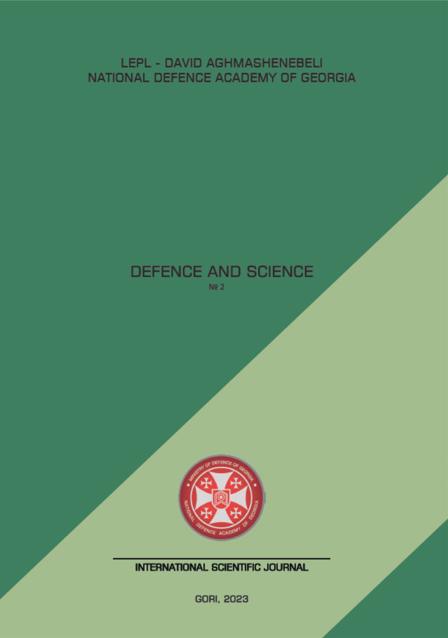The Role of Leadership in Policy Towards domestic decisions and its influencing the formulation of foreign policy
DOI:
https://doi.org/10.61446/ds.2.2023.7406საკვანძო სიტყვები:
International system, Neoclassical Realism, levels of analysis, systemic factors, analysis of leader’s traits, Neoclassical Realism theory and political realismანოტაცია
In the process of governance, beliefs and values of civic and religious leaders are utterly significant. In the light of principles of political realism, the politics are commanded by objective laws, the roots of those can be traced to human nature, political behavior of human only depends on human nature. Behavour of human, as a specific political individual, defines his political actions, being a political actor.
The mission of the following article is to determine the impact of role and decisions of the specific leader on internal politics, as well as international relations context. The subject of research is to explain leader’s particular role in foreign affairs decision making and analysis of leaders’ traits affecting the formation of foreign policy, by theoretical approach of Neoclassical Realism and practical aspects.
During Researching specific facts of international relations by Neoclassical Realism theory, three levels of analysis are used, first level examining role of leader or leaders, second level explaining internal factors of foreign policy, third level determining systemic factors.
The aim of this research is, both conceptually and practically, on individual analysis level, to determine the impact of ideological views, values and personal decisions of state or spiritual leader, when dealing with deterioration of relations with strategic partners or crisis.
Individual, first level of analysis emphasizes on individual, governmental or non-governmental statesman, country leader, whose political values, political weight, behavior, belief, woes, personal decisions affect internal political environment during decision making process, ultimately defining foreign policy and impacts regional and global security context. Theoretical and practical interaction let us explain the degree of impact of individual psychological, ideological, cultural factors, how political actors perceive their and others’ capabilites and how those perceptions translate to foreign policy.
The research showed, that in today’s volatile international system, personal decisions of regional and global leaders bear significant role and this topic generally, is a vital challenge of security and economy sphere.










